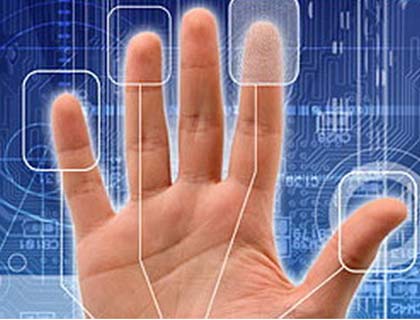KABUL - Afghanistan has many dubious distinctions on the international-rankings front: 10th-poorest, third-most corrupt, worst place to be a child, longest at war. To that may soon be added: most heavily fingerprinted. Since September, Afghanistan has been the only country in the world to fingerprint and photograph all travelers who pass through Kabul International Airport, arriving and departing.
A handful of other countries fingerprint arriving foreigners, but no country has ever sought to gather biometric data on everyone who comes and goes, whatever their nationality. Nor do Afghan authorities plan to stop there: their avowed goal is to fingerprint, photograph and scan the irises of every living Afghan.
It is a goal heartily endorsed by the American military, which has already gathered biometric data on two million Afghans who have been encountered by soldiers on the battlefield, or who have just applied for a job with the coalition military or its civilian contractors.
The Kabul airport program is also financed by the United States, with money and training provided by the American Embassy. Americans, like all other travelers, are subject to it.
"Some of the embassies are quite exercised about it," one Western diplomat said. Such a program would be illegal if carried out in the home countries of most of the occupying coalition.
The United States and Japan fingerprint all foreigners on arrival; South Korea plans to start doing so in January. (Brazil retaliated against the American program by fingerprinting arriving Americans only.) Officials at the American Embassy declined to comment specifically on the program; a spokesman for the Department of Homeland Security denied it had anything to do with it.
Biometric data is also being gathered by the American military at all of Afghanistan's eight major border crossings, in a program that it plans to hand over to the Afghan government at the end of this month. So far, that program gathers only random samples at border crossings, because traffic is so heavy, but since it began in April it has already added 200,000 people to the military's biometrics database.
The military wants to use biometrics to identify known or suspected insurgents, and to prevent infiltration of military bases and Afghan security forces. "The technology removes the mask of anonymity," said Capt. Kevin Aandahl of the Navy, a spokesman for the military's detainee operations, which include the biometrics program.
Gathering the data does not stop at Afghanistan's borders, however, since the military shares all of the biometrics it collects with the United States Department of Justice and the Department of Homeland Security through interconnected databases.
Even the civilian-run airport program collecting fingerprints and photographs feeds its information into computers at the American Embassy, as well as at the Afghan Ministry of the Interior and its intelligence agency, the National Directorate of Security, according to Mohammad Yaqub Rasuli, the head of the Kabul International Airport.
Mr. Rasuli acknowledges that the airport screening has had a rocky start. "We are happy with the system, but the airlines and the passengers are not that happy," he said.
Delays of up to two hours have resulted from the screening, which takes at least three minutes per passenger. With six screening stations at most, the process becomes laborious, and so many travelers recently have been missing their flights that the airlines routinely delay takeoffs.
"Someone who is not used to this system, it can take 10 to 15 minutes each," said Mohammed Fawad, deputy director of immigration at the airport.
Reporters at the airport have on several occasions witnessed immigration officers just waving through some passengers as crowds backed up; others were allowed to skip their thumbprints to speed things along. One man had his hand fingerprinted upside down, with nails facing the scanner.
"It is some sort of cultural deficiency," Mr. Rasuli said. "After six months, everyone will be happy with it." The next step will be a national identity card with biometric data on every citizen, he said. "A lot of our problems will be solved with this."
As with the military's biometric data, information on each person is fed into a computer to find those who are on terrorist watch lists, have outstanding criminal warrants or even are just businessmen under investigation.
In the first two and a half months, how many suspects have been apprehended with the new system, Mr. Rasuli was asked. (Agencies)

